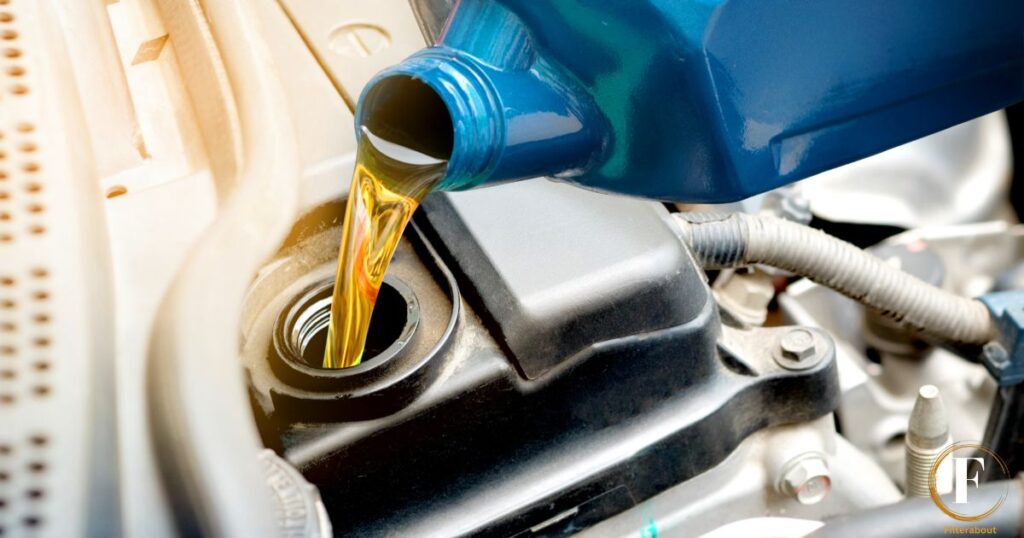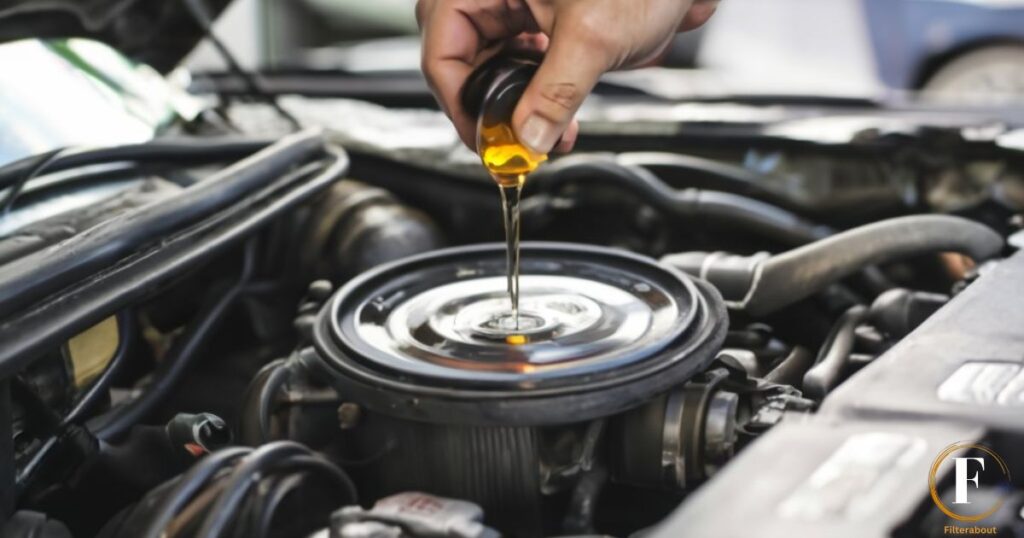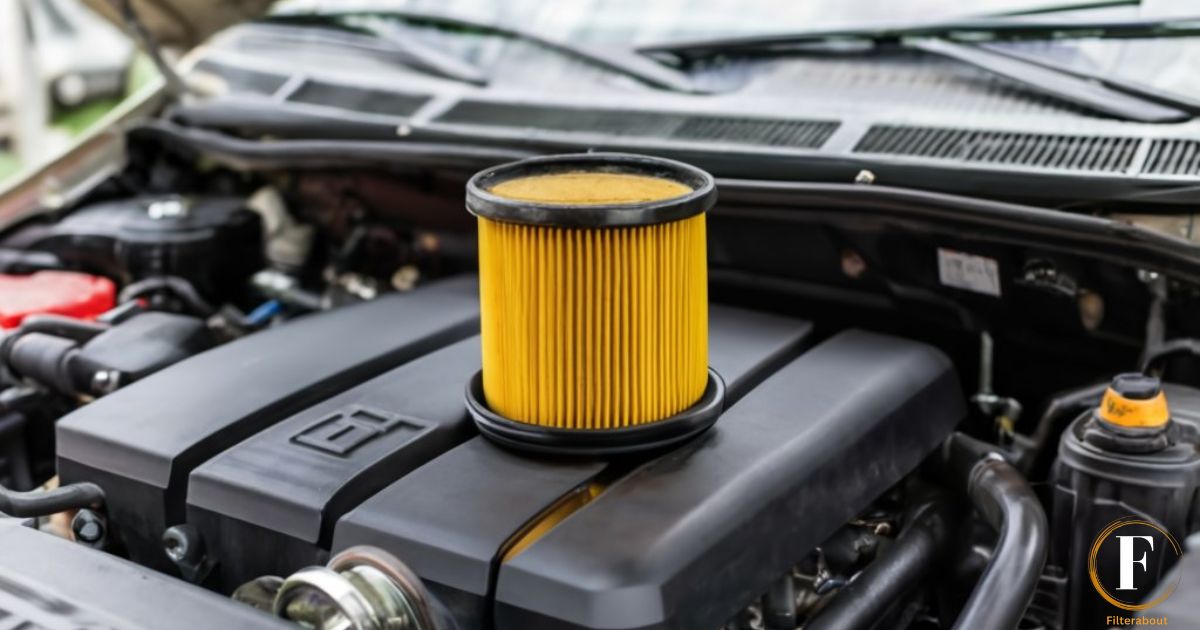Engine oil filter is a crucial component in a vehicle that removes contaminants from the engine oil ensuring it stays clean and effective. By trapping dirt debris, and particles the oil filter helps maintain engine performance and prolongs the life of the engine.
Engine oil filter with a simple practice of consistent oil changes. Ever wondered How Can You Extend the Lifespan of Your Engine Oil Filter? It’s as easy as maintaining a regular maintenance schedule. By doing so you ensure cleaner oil, better engine performance and an extended filter life. Keep your ride running smoothly with this essential tip.
Prolonging your engine oil filter’s lifespan ensures regular replacements to remove contaminants. Follow manufacturer guidelines for oil change intervals and use quality oil for optimal performance and longevity.
Choose the Right Engine Oil
Choosing the right engine oil is crucial for maintaining the health and performance of your vehicle’s engine. Engine oil serves multiple purposes including lubricating moving parts, reducing friction and cooling the engine.
When selecting engine oil consider factors such as viscosity which determines the oil’s thickness at different temperatures, and the oil’s additives that help protect against wear corrosion and sludge buildup.
Consult your vehicle’s owner’s manual for manufacturer-recommended specifications and change intervals. Regularly changing the engine oil along with the engine oil filter is essential for optimal engine function and longevity.
Don’t overlook the importance of the engine oil filter in your vehicle’s maintenance routine. The oil filter plays a critical role in trapping contaminants and debris preventing them from circulating through the engine. Over time the filter can become clogged reducing its effectiveness and potentially causing damage to the engine.
Ensure that you replace the oil filter at recommended intervals during oil changes to ensure clean and efficient oil circulation throughout the engine. Regular maintenance of both the engine oil and the oil filter is key to maximizing your vehicle’s performance and extending its overall lifespan.
Maintain Regular Oil Changes

| Step | Action |
| 1 | Schedule regular oil changes |
| 2 | Set reminders for timely service |
| 3 | Choose high-quality oil and filters |
| 4 | Consult vehicle manual for specifications |
| 5 | Select a reputable service provider |
| 6 | Monitor mileage for oil change intervals |
| 7 | Keep records of maintenance for reference |
Invest in a Quality Oil Filter
Investing in a quality oil filter is crucial for maintaining the health and longevity of your vehicle’s engine. The engine oil filter plays a vital role in the overall performance of your engine by removing impurities and contaminants from the oil. Over time these particles can accumulate and cause significant damage to the engine components leading to reduced efficiency and potential long-term issues.
By regularly replacing your engine oil filter with a high-quality option you ensure that the oil circulating through your engine remains clean, allowing it to lubricate and protect critical components effectively. This preventive measure can contribute to improved fuel efficiency, reduced engine wear and an overall smoother and more reliable driving experience.
When selecting an engine oil filter prioritize quality over cost. A premium engine oil filter is designed to trap smaller particles and provide better filtration efficiency compared to lower-quality alternatives. Investing in a reliable engine oil filter not only safeguards your engine but also extends the life of your vehicle.
Regularly changing the filter as part of your routine maintenance ensures optimal engine performance and helps avoid costly repairs down the road. Choose a reputable brand that meets the specifications recommended by your vehicle’s manufacturer for the best results in maintaining a clean and well-lubricated engine.
Monitor Driving Conditions

- Weather Check: Begin by checking the current weather conditions before heading out. Be aware of any precipitation, fog, or extreme temperatures that could affect driving.
- Traffic Updates: Stay informed about traffic conditions by using navigation apps or listening to traffic reports. Knowing about congestion or accidents ahead allows for timely route adjustments.
- Vehicle Inspection: Regularly inspect your vehicle’s crucial components, including tire pressure, brake pads, and lights. Address any issues promptly to ensure the vehicle is in optimal working condition.
- Road Sign Awareness: Pay attention to road signs for important information about speed limits, construction zones, and potential hazards. Adhering to these signs enhances safety for yourself and other road users.
- Speed Management: Follow posted speed limits and adjust your speed according to road and weather conditions. Slowing down during adverse weather or unfamiliar roads helps prevent accidents.
- Adaptability: Stay adaptable and responsive to changing driving conditions. Be prepared to adjust your driving style based on the environment, traffic, and any unexpected developments on the road. This proactive approach contributes to a safer and more enjoyable driving experience.
Check for Oil Leaks
Checking for oil leaks is a crucial aspect of regular vehicle maintenance to ensure the proper functioning and longevity of the engine. Begin by parking your car on a level surface and allowing the engine to cool down. Pop open the hood and visually inspect the engine and surrounding areas for any signs of oil puddles drips, or stains.
Pay special attention to the area beneath the engine around the oil pan and along the gaskets and seals. Inspect the engine oil filter for any visible signs of leakage. It’s essential to address oil leaks promptly as they can lead to decreased oil levels, potential engine damage and compromised overall vehicle performance.
The engine oil filter plays a vital role in trapping contaminants and impurities preventing them from circulating through the engine. During the oil leak check closely examine the area around the engine oil filter for any oil residue or dampness. If you notice any signs of leakage it may indicate a faulty or improperly installed oil filter.
Regularly replacing the engine oil filter as part of routine maintenance can help prevent leaks and ensure the efficient filtration of oil, promoting optimal engine performance. Be sure to consult your vehicle’s manual for recommended oil filter replacement intervals and use high-quality filters to maintain the health of your engine.
Use Engine Oil Additives Wisely

Engine oil additives can be beneficial when used wisely to enhance the performance and longevity of your vehicle’s engine. These additives are designed to improve the lubricating properties of the oil protect against wear and tear and reduce friction within the engine components.
However, it’s essential to use them judiciously and follow the manufacturer’s recommendations, as excessive or improper use can lead to detrimental effects on your engine’s health.
Before adding any engine oil additives, it’s crucial to understand your vehicle’s specific requirements and the type of oil it uses. Some engines may not benefit from certain additives, and using the wrong ones can potentially harm the engine rather than improve its performance.
Regularly changing the oil and following the recommended maintenance schedule is key to ensuring the overall health of your vehicle. When used wisely and per the manufacturer’s guidelines, engine oil additives can contribute to a smoother-running engine and extended engine life.
Avoid Extended Oil Change Intervals
Regular oil changes are essential for maintaining the health and longevity of your vehicle’s engine. Extended oil change intervals beyond the manufacturer’s recommendations, can lead to detrimental consequences.
Over time, oil becomes contaminated with dirt debris and engine by-products losing its lubricating properties and effectiveness. When oil is not changed promptly it can result in increased friction within the engine, leading to accelerated wear and tear on crucial components.
This can result in reduced engine performance decreased fuel efficiency, and in severe cases, engine damage.
To avoid these issues it’s crucial to adhere to the recommended oil change intervals outlined in your vehicle’s owner’s manual. These intervals are designed to ensure that the engine receives fresh clean oil regularly maintaining optimal lubrication and overall performance.
By following the manufacturer’s guidelines and avoiding extended oil change intervals you can contribute to the longevity and reliability of your vehicle’s engine saving you money on potential repairs and ensuring a smoother driving experience.
Follow Manufacturer Recommendations

It is crucial to follow the manufacturer’s recommendations when it comes to maintaining and servicing your vehicle. These guidelines are specifically designed to ensure optimal performance longevity and safety of your vehicle.
Whether it’s adhering to scheduled maintenance intervals using recommended fluids or following prescribed procedures, manufacturers provide these instructions to help you avoid potential issues and keep your vehicle running smoothly.
One key aspect of adhering to manufacturer recommendations involves selecting and replacing the engine oil filter at the recommended intervals. The engine oil filter plays a vital role in preserving the engine’s health by trapping contaminants and debris preventing them from circulating through the engine.
Regularly changing the engine oil filter in accordance with the manufacturer’s guidelines, helps maintain proper lubrication, enhances engine efficiency and extends the overall life of the vehicle.
By staying vigilant with routine maintenance especially in areas like engine oil filter replacement you contribute to the longevity and reliability of your vehicle as per the manufacturer’s specifications.
Frequently Asked Questions
How long can engine oil filter last?
Engine oil filters generally last 3,000 to 10,000 miles, depending on the filter type, driving conditions, and oil change intervals.
Can an oil filter last 2 years?
While some long-life filters claim extended durations, it’s not recommended to use any oil filter for more than 1 year.
Does oil filter last longer than oil?
Oil filters generally do not last longer than the oil. It’s essential to replace both the oil and filter as recommended.
Conclusion
Ensuring the longevity of your engine oil filter is crucial for maintaining optimal engine performance and prolonging the overall lifespan of your vehicle. Regular maintenance practices play a pivotal role in achieving this goal. By adhering to routine oil and filter changes as recommended by your vehicle’s manufacturer you can effectively prevent the buildup of contaminants that compromise the filter’s efficacy.
Selecting a high-quality oil filter with superior filtration capabilities and durability is essential. Consistent monitoring of your oil filter’s condition and replacing it promptly when necessary is a proactive measure that safeguards your engine against potential damage.
How Can You Extend the Lifespan of Your Engine Oil Filter? Embracing a comprehensive approach to engine care, including proper driving habits and regular inspections, contributes to the prolonged efficiency of your oil filter. Prioritizing the health of your engine oil filter translates to enhanced engine performance, fuel efficiency and an extended overall lifespan for your vehicle.

Alexander Quinn is the author behind Filterabout.com. Known for expertise in diverse topics, Quinn’s content on the website reflects a versatile knowledge base catering to various interests.



![Jynxzi Age, Net Worth, Career[2024]](https://filterabout.com/wp-content/uploads/2024/05/Who-Is-Shanin-Blake-Age-Wiki-Parents-Dating-Net-Worth-300x148.jpg)
![Jynxzi Age, Net Worth, Career[2024]](https://filterabout.com/wp-content/uploads/2024/05/Jynxzi-Age-Net-Worth-Career2024-300x148.jpg)


![Kutty Surumi Net Worth, Bio, Age[2024]](https://filterabout.com/wp-content/uploads/2024/05/Kutty-Surumi-Net-Worth-Bio-Age2024-300x148.jpg)



![Jynxzi Age, Net Worth, Career[2024]](https://filterabout.com/wp-content/uploads/2024/05/Who-Is-Shanin-Blake-Age-Wiki-Parents-Dating-Net-Worth-150x150.jpg)